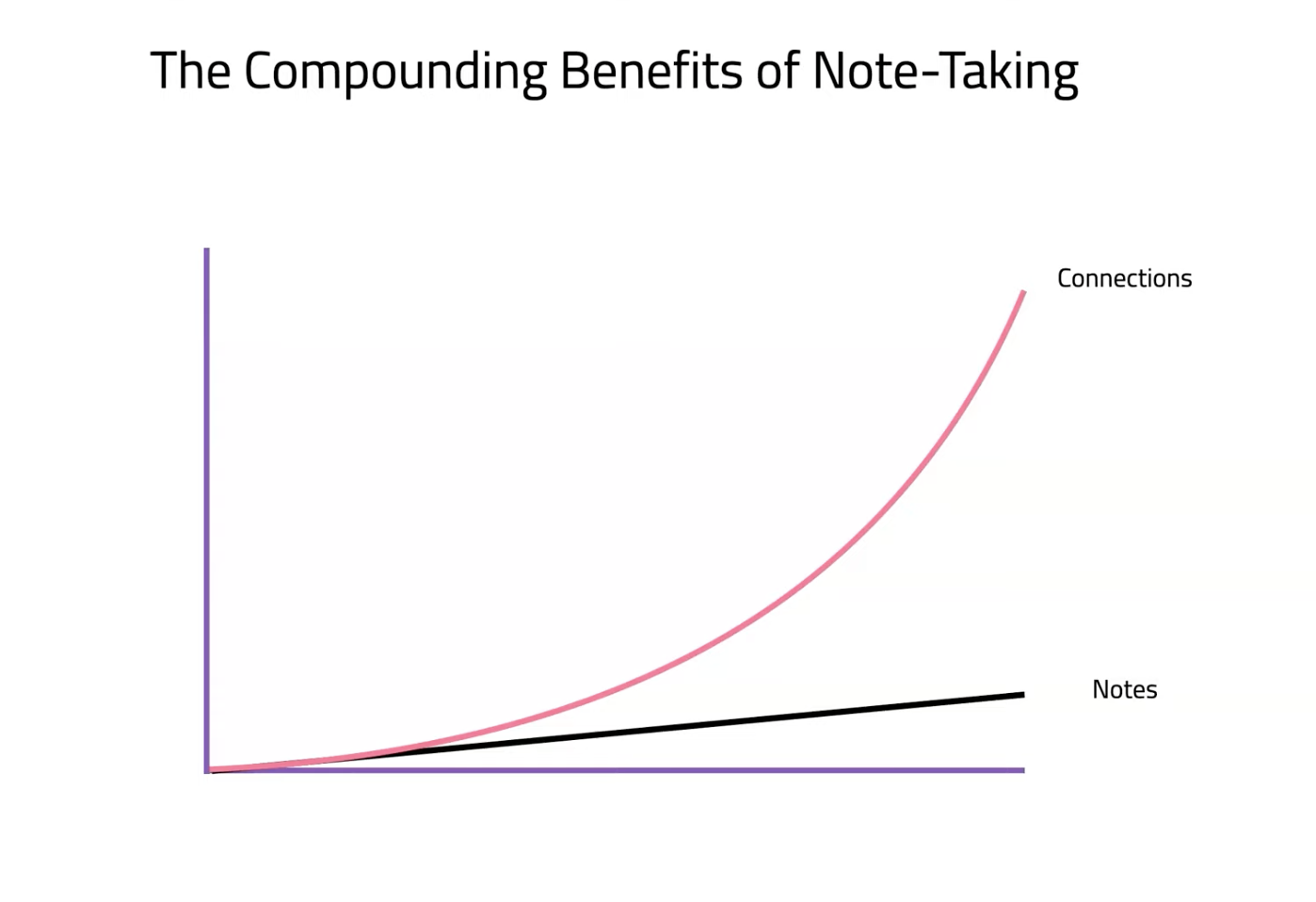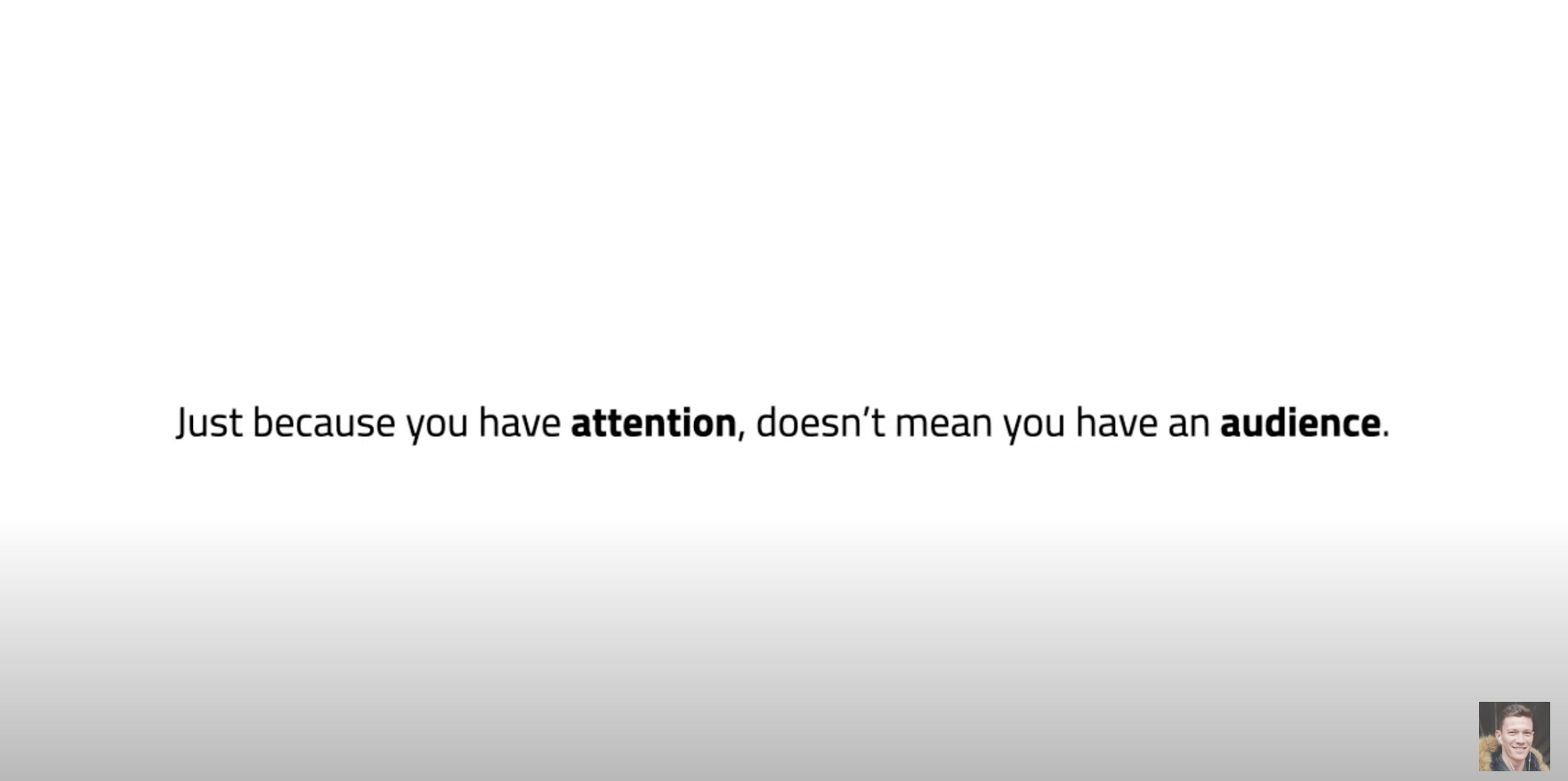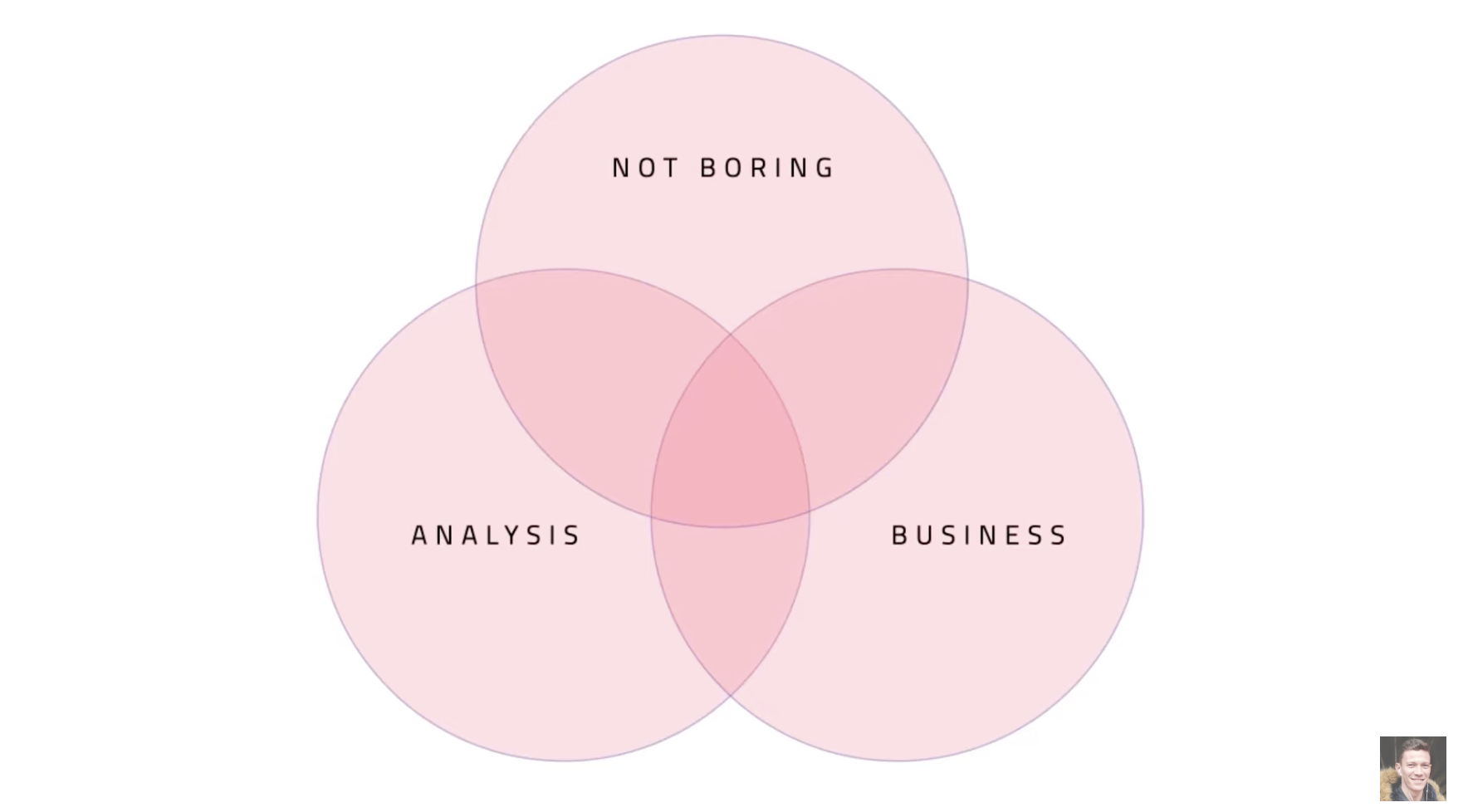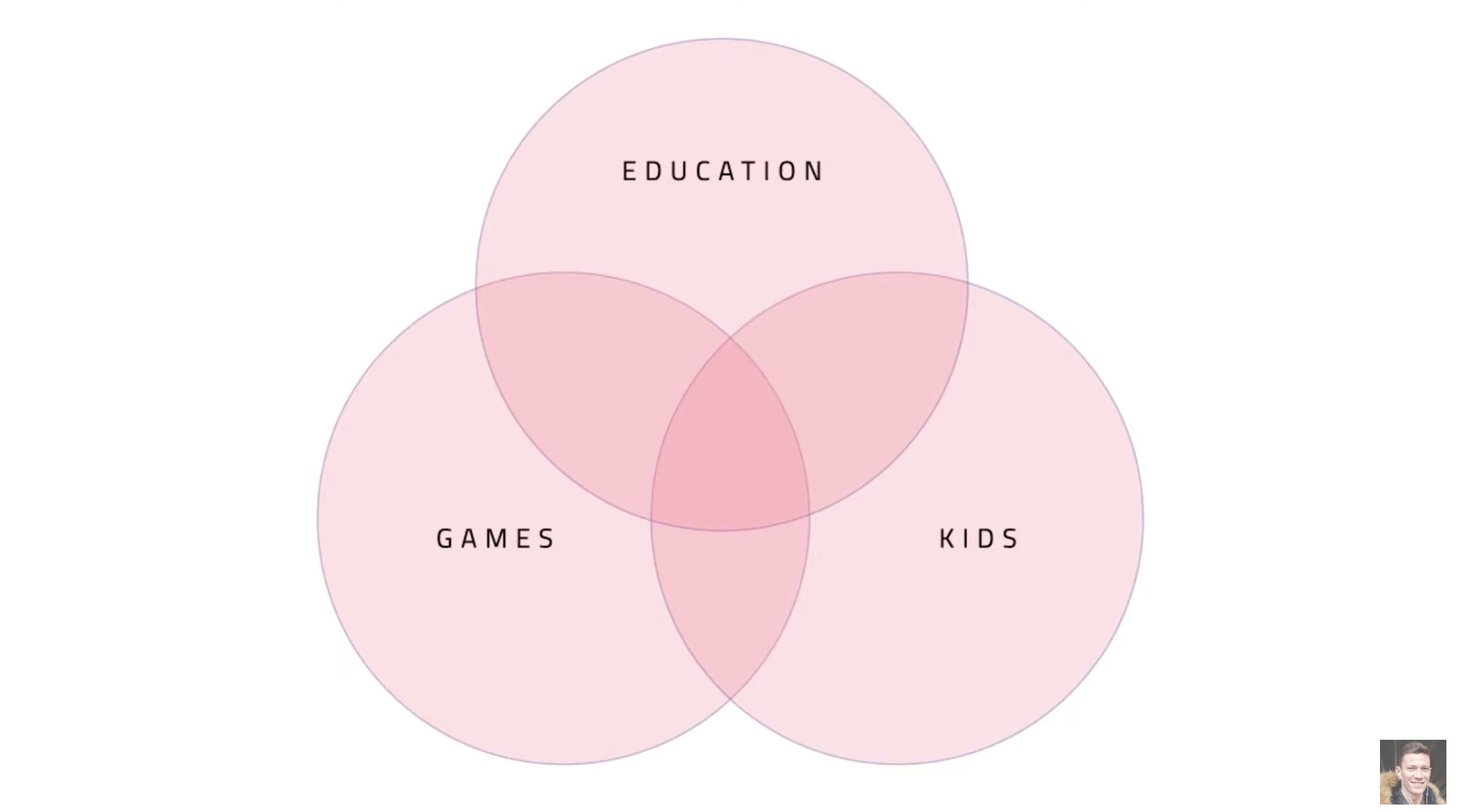From YouTube.
Notes
- Write of Passage Method:
- Write from Abundance
- Collect ideas regularly so you don’t have to start writing from scratch.
- Have a note-taking system – the Capture Habit.
- Notes:
- Obsidian
- Books and PDFs:
- Kindle
- Webpages:
- -
- Social Media:
- -
- Articles:
- Instapaper
- Notes:
- Ideas to Save:
- Useful
- Links and references.
- Inspiring
- Inspiration – for David, when he went to London he saw the world’s largest collection of original Beatles lyrics. That inspired him and he wrote that down in his note-taking system.
- Easily Lost
- Interesting quotes.
- Personal
- Personal observations – how does this relate on a personal level?
- Useful
- Information is like food.
- Chefs want quality produce the way we want quality information in our lives.
- Ideas are assets for writers.
- The number of your notes increases linearly, but the possible connections between them increase exponentially:
- Will Mannon on the Capture Habit: ^e873a6
- Instead of filming an Instagram story, jot down stuff as you go throughout your day.
- Write while you read
- Most people just consume without making use of the information they’re taking in.
- Build a digital diary.
- David’s favorite book from 2021 is Matthew McConaughey’s Greenlights.
- Matthew wrote the book by compiling 30 years worth of notes. He secluded himself in the woods and combined the notes into a finished manuscript.
- David’s favorite book from 2021 is Matthew McConaughey’s Greenlights.
- Questions to Ask
- Stories
- What are your go-to stories?
- Experiences
- Write about once-in-a-lifetime moments.
- Insightful
- In what ways do you surprise your peers?
- Memories
- What’s a memory you don’t want to forget?
- Stories
- Modern writing is assembled.
- Find
- Assemble
- Hot Notebooks
- Really specific – could be an essay. Examples include:
- Laws of the Internet
- The Microwave Economy
- The Knife Theory of Hiring
- The Inversion of Censorship
- Really specific – could be an essay. Examples include:
- Cold Notebooks
- General topics – no immediate essay in mind, but they are collected in one place.
- Architecture
- Building a Second Brain
- Christianity
- Derek Sivers
- Electricity
- Philosophy
- Etc.
- General topics – no immediate essay in mind, but they are collected in one place.
- Hot Notebooks
- Express
- Information from the Find and Assemble stages are merely collated or amalgamated in the Express stage.
- Read to collect the dots. Write to connect them. Here’s a cool image from one of David Perell’s tweets:
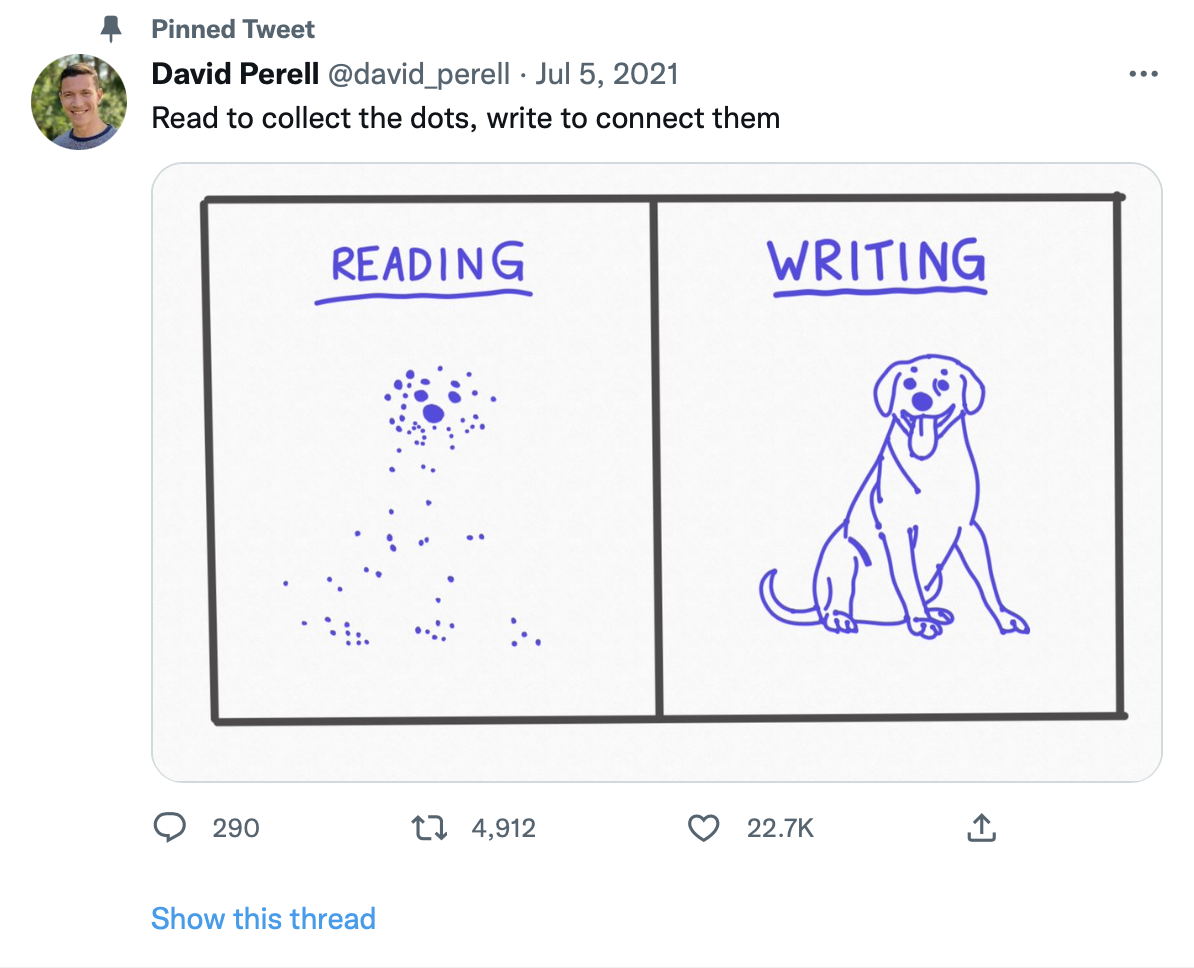
- Ken Burns’ 11.5-hour Civil War documentary was culled from 22.73 miles of film.
- He says it’s like Maple Syrup: we need 40-50 gallons of sap for 1 gallon of sweet maple syrup.
- Write from Conversation
- Surround yourself with people who ignite an intellectual fire inside of you.
- Writing doesn’t have to happen alone. It can be a social experience.
- Henry David Thoreau isolated himself while writing Walden Pond. But writing doesn’t have to be this way.
- We can learn something from James Clear:
- Before James published a book, he tested each of them using David’s theory of the Content Triangle:
- Conversation
- Feedback
- Feedback
- Article
- Distribute
- Newsletter
- Book
- David’s Content Triangle:
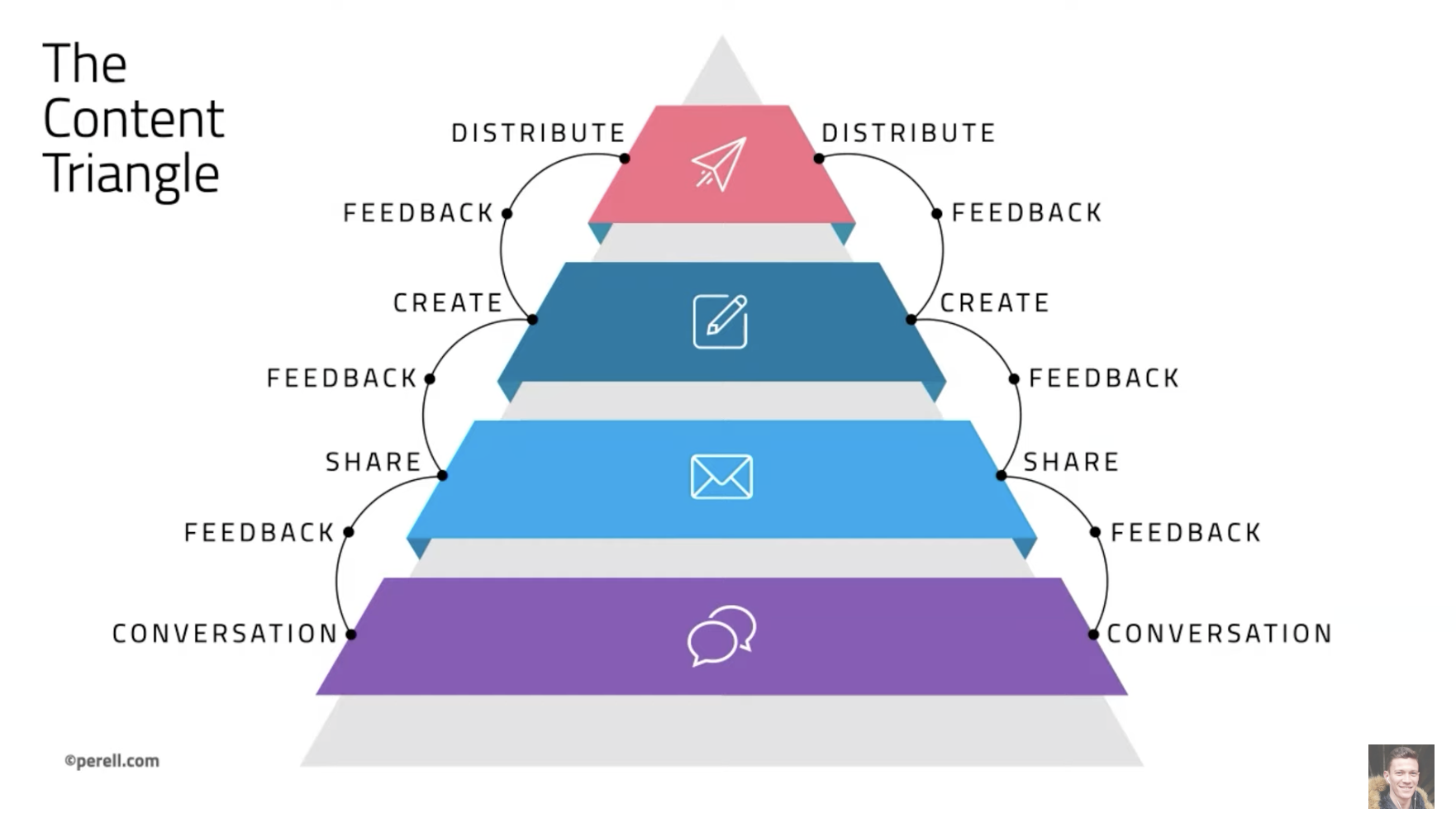
- Here’s an interesting tweet from James Clear subtly referencing David’s Content Triangle:
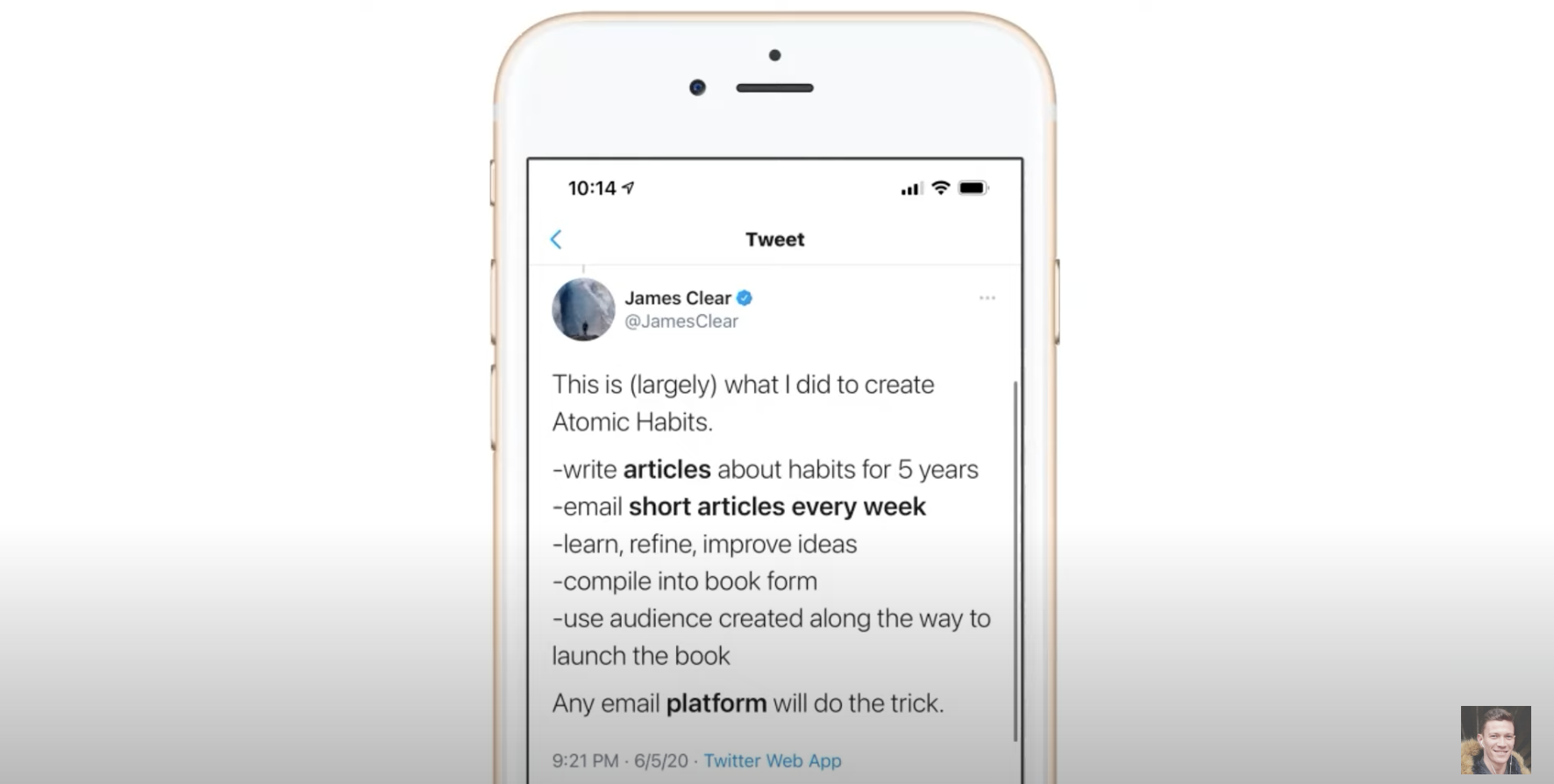
- Before James published a book, he tested each of them using David’s theory of the Content Triangle:
- We don’t need to be 100% original.
-
”I thought, This is so banal!” There is absolutely nothing there that is new. I’m not an archeologist. I’m not a primatologist. I mean, I did zero new research… It was really reading the kind of common knowledge and just presenting it in a new way. – Yuval Noah Harari, author of Sapiens
- There are 1,010 biographies of Winston Churchill.
-
- How to improve your writing.
- Don’t just write words. Write music.
- Here’s a quote from Gary Provost:
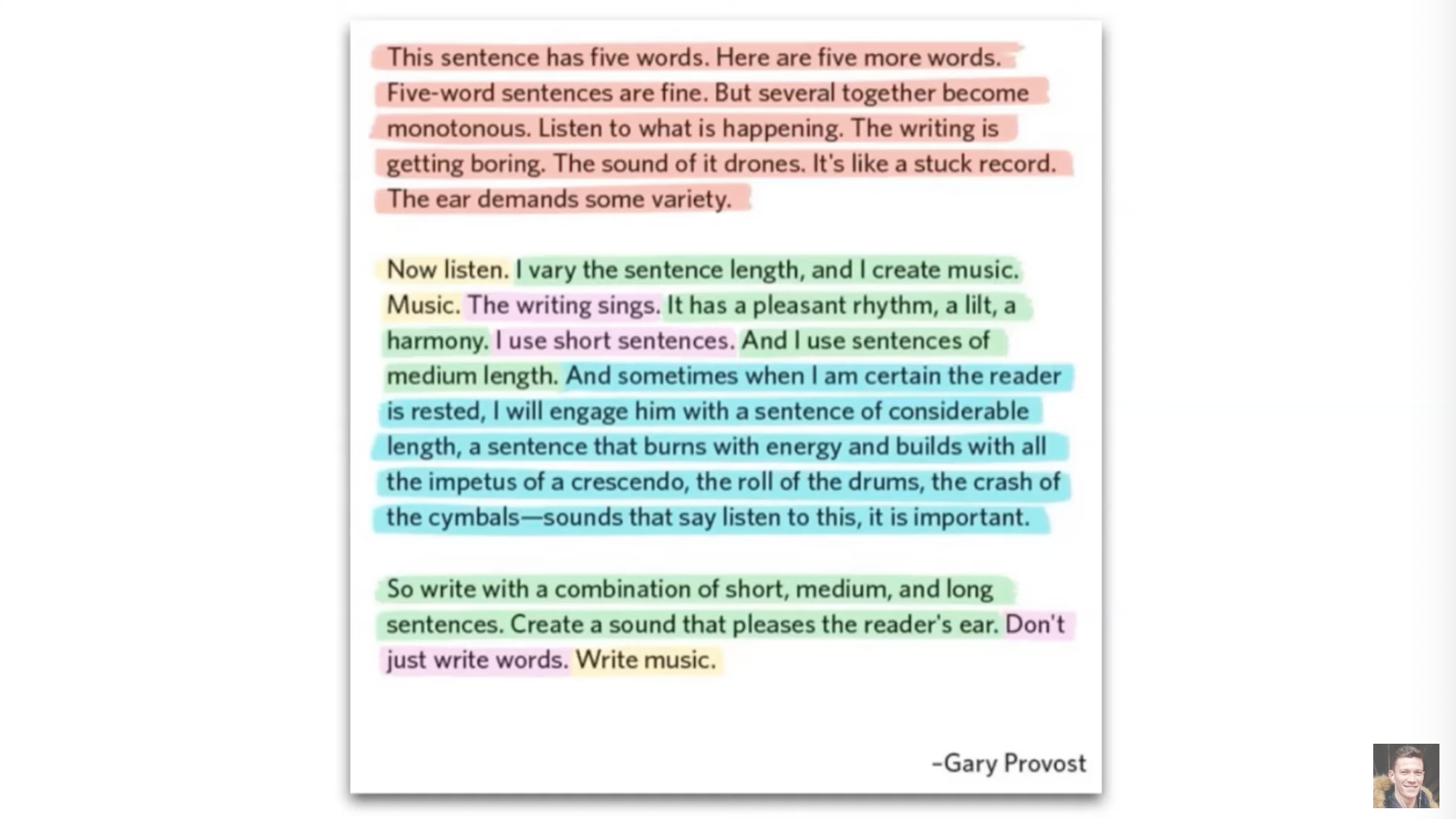
- Here’s a quote from Gary Provost:
- Imitate, then innovate.
- Ironically, the more we imitate others, the more we discover our unique style.
- Hunter S. Thompson handwrote every word in The Great Gatsby just so he could feel what it was to write a world-class novel.
- John Cleese of Monty Python copied jokes he heard on the radio so he could recite them to his friends in school.
- Quentin Tarantino is notorious for copying shots in films that he likes. The style associated with this copying then became Tarantino’s style.
- *The road to originality is paved with the inspiration of others.
- Don’t just write words. Write music.
- Write in Public
- Don’t just write for yourself. Create serendipity by sharing ideas with others.
- How do you get your ideas read?
- Public vs. Private Bridge
- Grow your audience on public platforms. Build relationships on private ones.
- Public: Twitter, Facebook, LinkedIn
- Private: Gmail, Convertkit, Substack
- Here’s an interesting slide from David’s presentation:
- David’s advice: Medium is great but you don’t own your relationship with people, so two things: 1) Create a newsletter, and 2) Make your own website.
- Public vs. Private Bridge
- Write from Abundance
- Personal Monopoly: ^ad6b39
- Unusual
- Skills or knowledge not often found together.
- Ed Latimore is a Physicist and a boxer, for example.
- Skills or knowledge not often found together.
- Complementary
- Skills that reinforce and amplify each other.
- Experiential
- Skills gained through experience.
- David can’t write about experiences in boxing because there is what he calls experiential wisdom in getting punched in the face a couple of times.
- David then talks about a Write of Passage cohort who became an assistant to four (4) different billionaires. A lot of people don’t have that experience.
- Specific
- The narrower the niche, the better.
- Here’s an example from Packy McCormick:
- And here’s another from Ana Lorena Fabrega:
- You can learn to write and build an audience of like-minded people. Many of the most influential writers aren’t seen as writers:
- Emily Weiss
- Started with a blog called Into the Gloss – now runs a multi-billion dollar company.
- Bill Gurley
- He started writing online in 1996.
- Nathan Barry
- Founder of ConvertKit – now worth $300,000,000.
- Emily Weiss
- Unusual
External Resources
LINKS: 00_master_list
